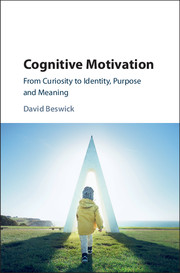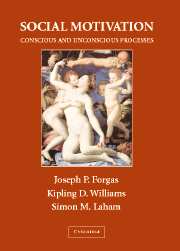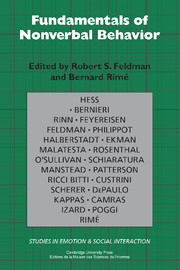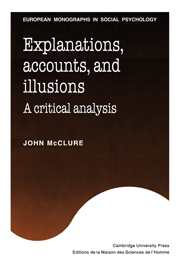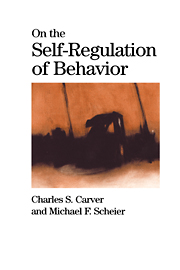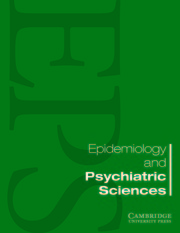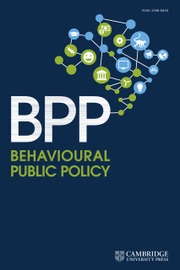Cognitive Motivation
From Curiosity to Identity, Purpose and Meaning
£110.00
- Author: David Beswick, University of Melbourne
- Date Published: August 2017
- availability: In stock
- format: Hardback
- isbn: 9781107177666
£
110.00
Hardback
Other available formats:
Paperback, eBook
Looking for an inspection copy?
This title is not currently available on inspection
-
Motivation and cognition were treated as separate concepts throughout most of twentieth-century psychology. However, in recent years researchers have begun viewing the two as inextricably intertwined: not only does what we want affect how we think, but how we think affects what we want. In this innovative study, Beswick presents a new general theory of cognitive motivation, synthesizing decades of existing research in social, cognitive and personality psychology. New basic concepts are applied to a wide range of purposive behaviour. Part I of the volume reviews different forms of cognitive motivation, such as curiosity, cognitive dissonance, achievement motivation, and the search for purpose and meaning, while Part II examines the basic processes that underlie it, such as working memory, attention and emotion. The central concept is the incomplete gestalt, in which motivation is generated by a universal striving to integrate information and make sense at all levels of cognitive organization.
Read more- Presents a new general theory of cognitive motivation, combining cognitive and affective processes
- Challenges the work of several major theorists and offers an original alternative in each case
- Provides a broad perspective which covers central themes of cognitive neuroscience, personality and social psychology, philosophy and literature
Reviews & endorsements
'This is the definitive book on the history of scientific research on curiosity. Dr Beswick offers a gift to readers, synthesizing research across the twentieth and twenty-first centuries to offer new insights on human motivation.' Todd B. Kashdan, George Mason University, Virginia and author of The Upside of your Dark Side and Curious?
See more reviews'Human beings not only think but want to think, and in particular ways. Beswick's book on cognitive motivation breaks new ground in exploring the fascinating interplay between psychology's two most fundamental concepts, namely cognition and motivation. This is an impressive, thoughtful, erudite treatment of the topic, including dazzling integration of what psychology's best thinkers have had to say about it.' Roy F. Baumeister, author of The Cultural Animal: Human Nature, Meaning, and Social Life
'David Beswick shows how the concept of an incomplete gestalt is relevant to different forms of cognitive motivation and how it relates to basic processes of memory, consciousness and emotion, as well as to goals, identity, meaning and purpose. This is a major work, scholarly and well-argued, providing a background to the many fascinating ideas that are presented. Highly recommended.' Norman Feather, Flinders University, Adelaide
Customer reviews
17th Oct 2024 by UName-796926
This well researched and beautifully presented text book written by Prof. David Beswick is a treasure chest of numerous indepth theoretical fundamentals compactly summarised and structurally well presented for anyone interested in motivation, curiosity, cognitive dissonance, identity, purpose, meaning and/or belief systems. The text is laced with insightful psychological ‘Beswickian’ insights: ‘…cognitive dissonance theory is deficient … It is one thing to be driven out of a condition of discomfort it is another to know where to go. The way cognitive elements come together must not only relieve discomfort but make sense in a whole figure, or have meaning, or move towards a meaningful pattern, in order to both energize and direct purposive behaviour’ (p. 88). I highly recommend this text as essential reading for professionals such as academics and clinicians, particularly psychologists, rehabilitation counsellors, health care chaplains and others interested in the theoretical and applicable processes to assist their clients with cognitive organization and cognitive motivation. Dr. Lindsay Carey, MAppSc, PhD. (School of Psychology and Public Health, La Trobe University)
Review was not posted due to profanity
×Product details
- Date Published: August 2017
- format: Hardback
- isbn: 9781107177666
- length: 396 pages
- dimensions: 235 x 158 x 23 mm
- weight: 0.67kg
- availability: In stock
Table of Contents
Introduction: the incomplete gestalt
Part I. Forms of Cognitive Motivation:
1. Towards a general theory of cognitive motivation
2. Curiosity
3. Intrinsic motivation
4. Cognitive dissonance
5. Achievement motivation
6. Agency, efficacy and attribution
Part II. Basic Processes and Applications:
7. Working memory, consciousness, and attention
8. The function of emotion in cognitive motivation
9. Goals
10. Intentions
11. Identity
12. Purpose and meaning.-
General Resources
Find resources associated with this title
Type Name Unlocked * Format Size Showing of
This title is supported by one or more locked resources. Access to locked resources is granted exclusively by Cambridge University Press to lecturers whose faculty status has been verified. To gain access to locked resources, lecturers should sign in to or register for a Cambridge user account.
Please use locked resources responsibly and exercise your professional discretion when choosing how you share these materials with your students. Other lecturers may wish to use locked resources for assessment purposes and their usefulness is undermined when the source files (for example, solution manuals or test banks) are shared online or via social networks.
Supplementary resources are subject to copyright. Lecturers are permitted to view, print or download these resources for use in their teaching, but may not change them or use them for commercial gain.
If you are having problems accessing these resources please contact [email protected].
Sorry, this resource is locked
Please register or sign in to request access. If you are having problems accessing these resources please email [email protected]
Register Sign in» Proceed
You are now leaving the Cambridge University Press website. Your eBook purchase and download will be completed by our partner www.ebooks.com. Please see the permission section of the www.ebooks.com catalogue page for details of the print & copy limits on our eBooks.
Continue ×Are you sure you want to delete your account?
This cannot be undone.
Thank you for your feedback which will help us improve our service.
If you requested a response, we will make sure to get back to you shortly.
×
